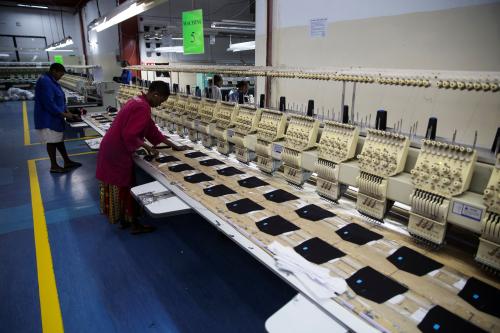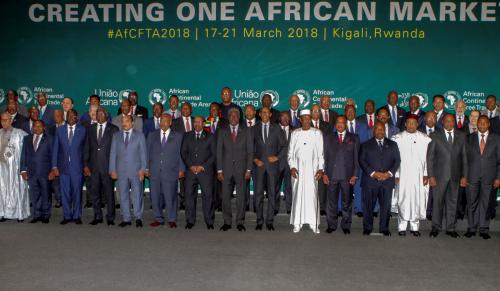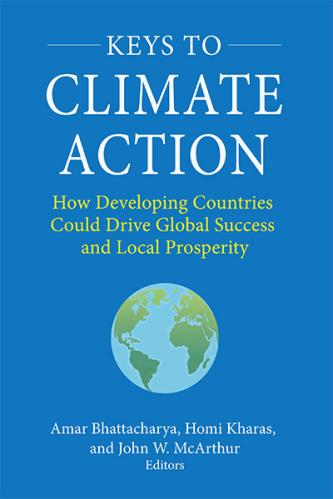The inaugural Africa Investment Forum took place from November 7 to 9 in Johannesburg, South Africa, with the goal of unlocking Africa’s investment potential by facilitating onsite transactions. “Less talk, more transactions and deals” was the motto of the gathering.
The forum, which was initiated by African Development Bank (AfDB) President Dr. Akinwumi Adesina, emphasized unequivocally the importance of investment, foreign and domestic, to economic development on the continent. As a result, it was the first investment forum of its kind, organized by Africa for Africa and in partnership with the friends of Africa. The gathering was attended by more than 1,900 delegates from more than 80 countries.
Over three days, the AfDB brought together African heads of state, billionaires, institutional investors, and business and policy leaders from across the continent. There were tangible outcomes. The AfDB announced that 49 deals worth $38.7 billion have secured investment interests. More than 230 projects across fifteen critical sectors were previewed. The forum also provided opportunities for entrepreneurs in the early “structuring” phase of business development to practice pitching their projects in an open marketplace. Networking among individuals from the public and private sectors was at a premium.
The AfDB’s initiative reflects a determination to overcome traditional barriers to closing investment deals while addressing the region’s significant infrastructure deficit. Among the successes and investment interests, South Africa benefited from a $3.7 billion deal for railway expansion and development; Ethiopia’s off-grid energy plan received investment support of $100 million in blended finance; and the Electricity Company of Ghana project arranged for $500 million of development finance capital, indicating a revitalization of energy investment and changing financial strategies. The infrastructure and water and sanitation sectors also significantly benefitted from the forum’s boardroom sessions, which led to, investments in a road-rail bridge between Kinshasa and Brazzaville and in sanitation in Tunisia’s small municipalities, for example. Furthermore, South Africa, as part of President Ramaphosa’s effort to attract $100 billion in investment over five years, closed $6 billion worth of deals with African investors, indicating that entrepreneurs can be found within Africa to partner on infrastructure improvements and the expansion of cross-border flows of capital and goods.
These successes were prefaced by AfDB President Dr. Akinwumi Adesina, who opened the forum by stating clearly that “Africa is not going to be developed by aid. It will be developed by investment…” This sentiment is likely to be embraced by the region’s development partners and governments, many of whom have made significant recent efforts to improve the investment climate on the continent. Five of the 10 most improved countries in the World Bank’s most recent Ease of Doing Business Report are in sub-Saharan Africa (Cote d’Ivoire, Djibouti, Kenya, Rwanda, and Togo). The participation of African leaders from dozens of countries sent a signal of confidence to forum participants and the rest of the world that African policymakers are prepared to continue making necessary reforms to foster investment and prospective projects. At the same time, challenges remain. Africa, for example, is the worst performing region on Transparency International’s Perception of Corruption Index, even though Botswana, Cape Verde, Namibia, Rwanda, and Seychelles score better on the index compared to some OECD countries such as Italy, Greece, and Hungary.
Capitalizing on the momentum of the deals closed at the forum, government leaders should recognize the urgency with which they need to reform investment policy and financial regulations. Without lower business costs through better business regulations and special economic zones, the deals closed at the forum may face challenges to implementation and long-term sustainability. Stronger property rights and dispute resolution mechanisms at the national level will enable more investment in innovative, high-risk projects. It is also anticipated that the recently concluded African Continental Free Trade Agreement will ease trade restrictions and integrate regional trade networks, which will spur innovation and increase the development of value-added products. These reforms will help investors to mitigate risks while securing high returns from African projects.
The African Investment Forum is a most welcome initiative. To ensure its ongoing relevance, the AfDB should provide regular progress updates on deals closed at the forum and investments that have moved from the boardroom stage to implementation. The AfDB and its partners should also continue working together to ensure the agreements and letters of interests signed are acted upon in the immediate future. To further capitalize on the success of this year’s forum, we propose five suggestions for the next session:
- Establish a mechanism to push commitments to become real investments after the forum. As specified by Professor Landry Signé in his newly released book titled “African Development, African Transformation: How Institutions Shape Development Strategy,” effective delivery mechanisms are critical for successful implementation of major continental initiatives, and some institutional configurations are more likely to help achieve outstanding outcomes than others. The AfDB should create an office that maintains contact between investors and project promoters, staffed by professionals who can work with entrepreneurs to develop their projects and solve problems as they emerge.
- Present a selection of the projects in key sectors that will be showcased at next year’s forum at least six months ahead of time. Early promotion will create incentives for increased participation and interest on the part of investors.
- Create space in the plenary sessions to present a larger selection of projects. Showcasing entrepreneurs with projects that are most in need of investments to transition from the financing to the construction and operation stages will solidify the forum’s efficacy in facilitating investment with high returns.
- Create an online platform, hosted by AfDB, where entrepreneurs can post their projects and engage with potential investors.
- Focus a segment on projects developed by women entrepreneurs and investors.
The African Investment Forum has the potential to help bridge the external and domestic financing gap in each of Africa’s sectors. African entrepreneurs should continue to develop and promote innovative projects to investors that will add infrastructure, employment, and industrial opportunities on the continent.








Commentary
Placing investment at the center of Africa’s development strategy
December 3, 2018